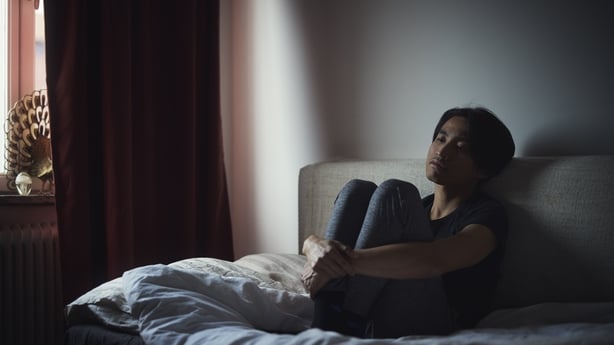As Storm Debi hits Ireland, bringing heavy rain and severe gale-force winds, yellow weather warnings have been issued for the entire country from midnight tonight until tomorrow at 3pm.
With miserable weather continuing, this is how experts have said it might have an impact on your mood…
Does the weather affect your mood?
When the weather changes, it can have a significant impact on your mood and mental state.
"Most people feel brighter in the summer due to the vitamin D and serotonin that sunshine brings. So cold weather, dark nights and a quieter life will make us feel low. That’s perfectly normal and nothing to worry about," suggested Smriti Joshi, lead psychologist at Wysa.
"When this impacts your life, it’s referred to as Seasonal Affective Disorder. At the same time, there’s no doubt that the cost-of-living crisis and affording the fuel and food to keep us warm will be increasing anxiety.
"This can make you feel tired, cause muscle aches, as well as [making you feel] stressed and sad. Circadian rhythms can get affected as summer ends, due to days getting shorter, and could lead to people experiencing sleep disturbances at night and feeling lethargic in the day."

What impact can it have?
According to Dr Jon Van Niekerk, group clinical director at Cygnet Health Care, other symptoms include irritability, low sex drive and a lack of energy. SAD can also make it difficult for a person to carry out simple day-to-day tasks, such as getting out of bed in the morning.
"We don’t fully understand what causes SAD, but there has been a lot of research exploring how daylight can influence our mood, appetite and wakefulness," said Niekerk.
"The main theory is that a lack of sunlight during shorter autumn and winter days can affect a part of the brain called the hypothalamus. It’s the hypothalamus which controls the production of serotonin, the production of melatonin, and the body’s internal clock – which in turn influences our mood, appetite, and wakefulness. When these functions are thrown off-kilter, it can lead to symptoms of SAD."

What can you do to combat the changes in your mood?
This time of year can be great for resetting, reflecting and recharging – and there are certain things you can do to boost your mood, even if the weather is grim.
Tina Woods, health expert and CEO of Business for Health, suggested adopting a regular exercise routine – along with some other lifestyle tweaks.
"By incorporating 30 minutes into your daily routine, you can activate your neurotransmitters, in turn, boosting your mood. This doesn’t have to be strenuous gym classes. Build in small changes that can have a big impact, such as jumping off the Tube a stop early and walking, or walking up the escalators or stairs when you have the choice," Woods said.
"Socialising is extremely effective for mental health and wellbeing [too], especially in those winter months when serotonin levels are likely to be lower. Try not to isolate yourself and stay cooped in, due to rainy weather. By socialising with peers, keeping in touch with friends and family or even making an effort to commit to a company-wide social event, you can help ward off the effects of bad weather.

"Food is [also] closely linked to our mood and sleeping habits. That’s why it’s crucial to maintain a healthy diet to prevent the impact of the weather on your mood. Vitamin D is known as the ‘sunshine vitamin’ as your body can make it by absorbing natural sunshine and through the foods you eat. This includes mushrooms, milk, eggs and fish such as salmon and tuna fish."
If you want to adopt some positive new habits, Niekerk recommends ‘habit stacking’. He said: "The idea is simple: if you’re trying to incorporate a new habit into your routine, then ‘combine’ it with another habit that you enjoy or find easy."
Otherwise, he added: "There’s light therapy: you can also use a special lamp (called a ‘light box’) to simulate exposure to sunlight.
"If it gets really bad, you can try talking therapy. Cognitive behavioural therapy (CBT) or counselling can also be a great help if you’re struggling with your mental health in the winter months."
If you are really struggling, book an appointment with your GP or call the Samaritans (phone 116123), or Pieta House (1800247247 .
